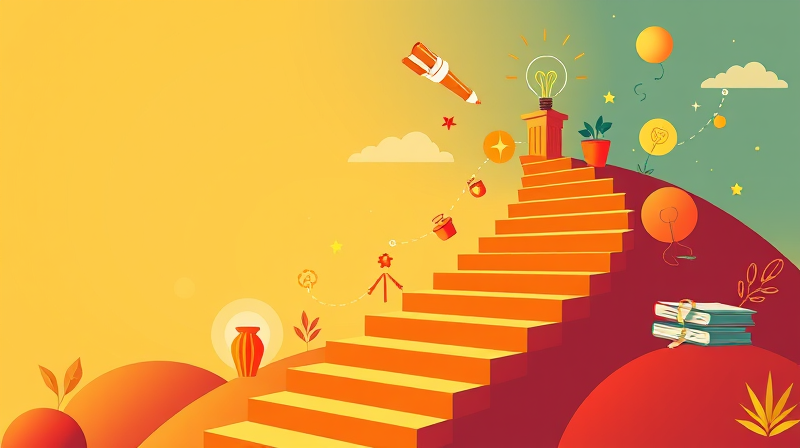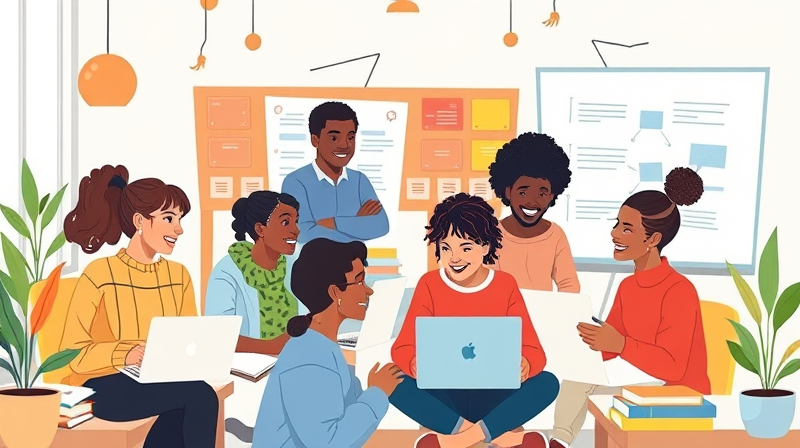Setting clear and realistic learning goals can transform your educational journey. When you have specific and well-defined objectives, you not only gain direction but also motivation and confidence to reach your full potential. In this article, we explore actionable strategies that empower learners to establish, pursue, and achieve their learning aspirations.
Effective goal-setting is not a one-size-fits-all process. It requires a blend of structure, self-reflection, and adaptability. Whether you are a student or a professional, the following methods help in building a roadmap to success and encourage lifelong learning.
Embrace Proven Goal-Setting Frameworks
Using established frameworks can streamline your goal-setting process. Approaches like SMART goals, which stand for Specific, Measurable, Achievable, Relevant, and Time-bound, help to create clear milestones. For instance, instead of vaguely aiming to "improve math skills," you might set a goal to "solve multi-step word problems involving fractions with 85% accuracy within two months."
Another effective framework is the PACT approach, which encourages goals that are Purposeful, Actionable, Continuous, and Trackable, ensuring that your objectives are aligned with your long-term vision. Similarly, the WOOP method—standing for Wish, Outcome, Obstacle, and Plan—guides learners to articulate their desires, predict any obstacles, and form practical solutions.
- SMART Goals: Specific, measurable, achievable, relevant, and time-bound.
- PACT Goals: Purposeful, actionable, continuous, and trackable.
- WOOP Method: Wish, outcome, obstacle, and plan.
By integrating these methods, you ensure that your targets are both inspiring and attainable, giving your learning journey a clear direction.
Break Down Goals and Monitor Your Progress
A key element of successful goal-setting is the ability to break larger ambitions into manageable steps. Large educational goals can often seem overwhelming, but when divided into smaller, incremental milestones, they become more approachable. For example, if you want to improve your overall academic performance, consider focusing on one subject at a time or working on a particular skill incrementally.
Using visual tools such as goal trackers, charts, or progress notebooks can be extremely helpful. These tools not only provide a roadmap to follow but also offer visual confirmation of your progress. When each milestone is reached, you are reminded of your accomplishments, further fueling your drive to succeed.
Regular self-reflection is essential. Dedicate time each week to assess your progress, identify areas for improvement, and adjust your plans as needed. This iterative process fosters a deeper understanding of your learning habits and reveals patterns that may require change.
Connect Your Goals to What Truly Matters
Learning goals are much more effective when they resonate with your personal interests and long-term aspirations. Instead of setting goals in isolation, consciously connect them with your values and passions. For instance, if you have a keen interest in technology, consider setting a goal to learn a new programming language or to work on a tech project that excites you.
Aligning your goals with personal relevance not only enhances your motivation but also makes the learning process more engaging. When your objectives are tied to your personal ambitions, the journey becomes as rewarding as the destination.
Celebrating your progress, no matter how small, can provide a significant boost. Create vision boards, maintain a personal journal, or even host small celebrations when you achieve a milestone. These practices reinforce your efforts and remind you that every step forward is a success.
Create Accountability and Embrace Flexibility
Accountability is a powerful motivator. Consider teaming up with a peer or mentor who shares similar ambitions. This partnership can provide mutual support, ensure you stay on track, and offer fresh insights when challenges arise. Regular check-ins with an accountability partner can transform lonely or overwhelming tasks into shared missions.
Flexibility is equally important in any learning journey. Circumstances change, and so might your learning needs. It is vital to adjust your goals and timelines if necessary. Flexibility allows you to navigate unexpected challenges without losing sight of your ultimate objectives. Embrace the idea that progress can be non-linear, and learning often requires revisiting and revising your objectives as you evolve.
Additionally, integrating formative assessment tools into your learning strategy helps in continuously evaluating your progress. Use exam scores, quizzes, and reflective feedback to identify areas of strength and improvement. This data-driven approach ensures that your efforts are always aligned with your intended outcomes.
Nurturing a Growth Mindset and Lifelong Learning
Cultivating a growth mindset—where challenges are seen as opportunities to learn and failure is simply a part of the journey—is essential. Shift your focus away from solely achieving high grades and instead concentrate on mastering new skills and concepts. This mindset encourages persistence, resilience, and a continuous drive to improve.
Creating a supportive and encouraging environment is crucial. Surround yourself with those who challenge you and celebrate learning as a journey rather than a destination. Over time, such an environment will not only bolster your educational achievements but also your overall personal growth.
By combining these actionable methods—leveraging proven frameworks, breaking down goals, connecting them with personal relevance, and promoting accountability and flexibility—you pave the way for a fulfilling and successful learning experience. With dedication, structured planning, and the willingness to adapt, every learner can turn ambitious goals into reality.
Remember, every step taken towards your goal is significant. With these practical insights and strategies, you are well-equipped to embark on an inspiring learning journey that yields tangible results and fosters lifelong growth.








